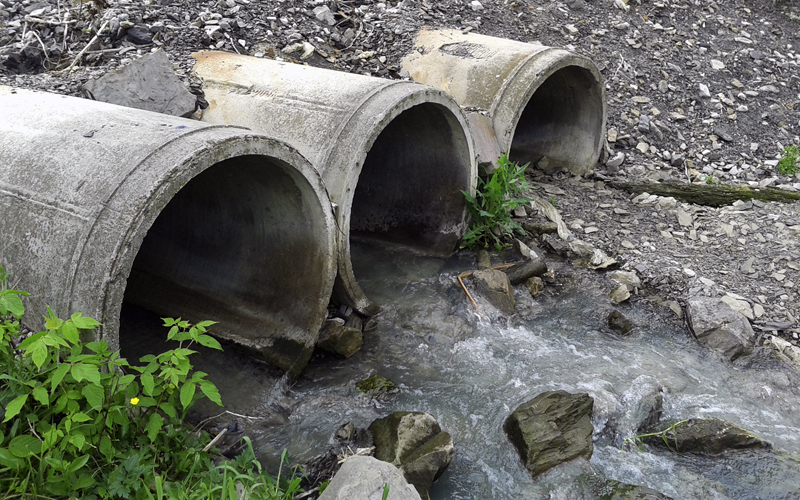
by guest blogger Ava Anderson, natural-beauty expert and safe-cosmetics advocate
Earth Day may have come and gone, but that doesn’t mean we shouldn’t be thinking about our planet every day of the year.
Here are three types of products you should put a little thought into before purchasing, as the wrong varieties can have lasting, harmful effects on our waterways, our environment, and ourselves:
1. Scrubs with microbeads. Did you know that Minnesota, New York, Illinois, and New Jersey recently banned the sale of products with microbeads? The rulings came after scientists discovered billions of micobead particles flowing out of water-treatment plants into our waterways and lakes.
How do they get there? After washing your face with a micobead scrub or exfoliator (or brushing your teeth with a micobead-laden toothpaste) the tiny beads are washed down the drain and flow into our waterways.
But the beads that make it into our wastewater-treatment plants aren’t filtered out. These plants aren’t designed to remove tiny plastic beads from our water; they’re only intended to remove and break apart human waste. Therefore, microbeads go back out into the water supply. Sometimes these beads make it out to the ocean, where fish absorb them… Then what? Those fish might the very ones on our plates!
Even more disturbing is the “toxic sludge” left behind at the wastewater-treatment plants—nicely renamed “biosolids.” This substance is filled with harmful compounds from prescription drugs and household chemicals, and it’s often sold to local farmers as “natural fertilizer.” The harmful chemical content may then leach into our groundwater.
2. Car-washing detergents. According to the Environmental Protection Agency (EPA), “Between 70 and 90 percent of residents reported that their car wash water drained directly to the street and, presumably, to the nearest stream. It has been estimated that 25 percent of the population of the United States may be classified as chronic car washers, which translates into about 27 million potential residential car wash polluters.”
On top of this pollution, a 10-minute car wash can use 100 gallons of water; 20 minutes can equal 200 gallons. With major droughts going on, especially in California, it’s time to stop going to conventional car washes or washing our cars at home with too much water and harmful detergents/soaps.
Instead, follow these earth-friendly tips for washing your car:
- Use greener soaps/detergent alternatives. Look for waterless, petroleum-free, and biodegradable car wash products.
- Wash your vehicle on grass, not pavement. Washing your car on a paved surface (like on the street or your driveway) can cause the soapy water to run into municipal storm drains and pollute local waterways. Instead, the Maryland Department of the Environment suggests that “washing over an unpaved surface will allow the soapy water to soak into the ground, be filtered, and eventually recharge the groundwater. If you have your own well, you should wash your vehicle at least 100 feet from the well head.”
- Use a hose with an automatic shutoff nozzle/power washer. This reduces water waste.
3. Household and personal products containing endocrine-disrupting chemicals (EDCs). Endocrine-disrupting chemicals like phthalates, parabens, and triclosan are found in everything from soaps to lotions to home-cleaning sprays—and like microbeads, after use, these chemicals often end up in our water supply, where they can then harm wildlife.
EDCs can mess with the hormones of humans, mammals, birds, and aquatic life. And unfortunately, their filtration into our waterways may be causing reproductive and developmental effects for everything from deer to mollusks.
The World Health Organization released a report that stated EDCs may have significant human and wildlife health implications and may threaten our fertility and the environment. So be sure to find personal care products with no EDCs. Check out the Ava’s Ingredients to Avoid List to get started.
 At the age of 15, Ava Anderson launched her safe line of personal care and home-cleaning products, Ava Anderson Non Toxic. Now 21, Ava is educating hundreds of thousands of American families annually on the issue of toxic chemicals in products through her line, which now includes baby, skin, hair, body, cosmetics, men’s, candles, bug, home, sun, and pet products. An undergrad at Babson College in Wellesley, Massachusetts, Ava actively helps run her large company with 60-plus employees and thousands of Ava Consultants in every state in the nation. Her goal is to force a paradigm shift on the issue of toxic chemicals in products—with your help.
At the age of 15, Ava Anderson launched her safe line of personal care and home-cleaning products, Ava Anderson Non Toxic. Now 21, Ava is educating hundreds of thousands of American families annually on the issue of toxic chemicals in products through her line, which now includes baby, skin, hair, body, cosmetics, men’s, candles, bug, home, sun, and pet products. An undergrad at Babson College in Wellesley, Massachusetts, Ava actively helps run her large company with 60-plus employees and thousands of Ava Consultants in every state in the nation. Her goal is to force a paradigm shift on the issue of toxic chemicals in products—with your help.




No comments yet.